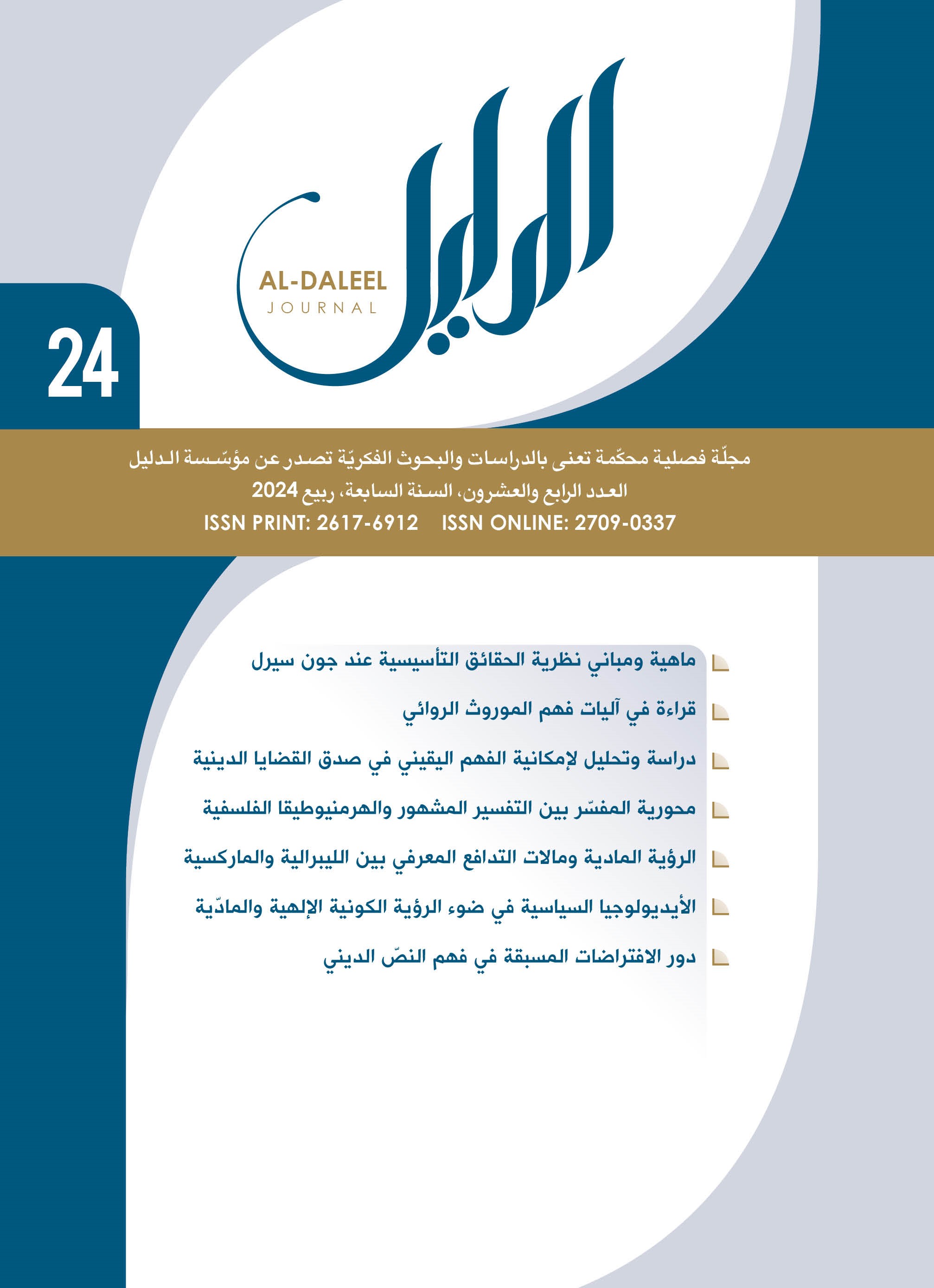Abstract
The topic of conventionalism, or institutional facts holds a special importance in contemporary discussions in epistemology, as it falls opposite to true and real concepts within the human epistemic system, including both concepts and assents. John Searle, a contemporary Western philosopher, dedicated his studies on social realities, and has unique views in this regard. He divided realities existing in this world into two: natural realities and institutional facts. Searle believed that natural realities are realities that exist independently from the perceiver, like trees, valleys, etc. As for institutional facts, their existence relies on a type of perception by the perceiver, like money, ownership, leadership, and so on. Among the problems Searle faced was his attempt to include institutional facts in the external world, and within material things. This led him to contradictions, because what is external cannot depend on the perception of the perceiver. When he rejected the immaterial and metaphysical realm, he also fell into the problem of a person being coerced, or predestined, because he had to analyse perception as it being something biological, formed within the nerve system of the brain. His claim that institutional facts originate from language also led him to a vicious circle, because that language itself would need language. In this paper, we used the analytical critical methodology in studying the theory of social realities according to John Searle, aiming at understanding this theory and its scope of usage.
Keywords
institutional facts
John Searle
Language
Will
Abstract
تحتلّ الاعتباريات أو “الحقائق التأسيسية” أهمّيةً خاصّةً في مجال الأبحاث المعرفية المعاصرة؛ إذ تقع في قبال الحقائق والمفاهيم الحقيقية في المنظومة المعرفية لدى الإنسان، وتشمل كلًّا من التصوّرات والتصديقات. واهتمّ جون سيرل بمسألة الاعتباريات الاجتماعية؛ إذ يعدّ من أبرز فلاسفة الغرب المعاصرين، الذين بحثوا في مسألة الاعتباريات الاجتماعية، أو كما يسمّيها هو “بالحقائق التأسيسية”، وكانت له آراؤه الخاصّة في هذا المجال؛ إذ قسّم سيرل الحقائق الموجودة في العالم إلى قسمين: حقائق طبيعية وحقائق تأسيسية. وذهب إلى أنّ الحقائق الطبيعية هي الحقائق التي يكون وجودها مستقلًّا عن المدرك؛ كالأشجار والوديان ونحوها، وأمّا الحقائق التأسيسية فإنّ وجودها يعتمد على نوع إدراك المدرك، كالمال والملكية والرئاسة ونحوها. ومن أهمّ الإشكالات التي يواجهها سيرل محاولته إدراج الحقائق التأسيسية في عالم الخارج وضمن الأشياء المادّية، وهو ما أوقعه في تناقض؛ لأنّ ما في الخارج والعين لا يمكن أن يكون متوقّفًا على إدراك المدرك. كما أنّه بنفيه لما وراء الطبيعة وعالم المجرّدات وقع في مشكلة كون الإنسان مجبورًا؛ لأنّه اضطر إلى تحليل الإدراك وكأنّه مسألة بيولوجية تنشأ من الأجهزة العصبية الموجودة في الدماغ. كما أنّ ادّعائه بأنّ الحقائق التأسيسية تتقوّم باللغة أوقعه في مشكلة الدور؛ لاحتياج اللغة نفسها إلى لغة. واعتمدنا في هذا البحث المنهج التحليلي والنقدي في دراسة نظرية الاعتباريات الاجتماعية عند جون سيرل، وذلك في نطاق تحديد طبيعة هذه النظرية ووظائفها.
Keywords
إسناد الوظيفة
الإرادة
الالتفات
الحقائق التأسيسية
القواعد المقوّمة
اللغة
جون سيرل
